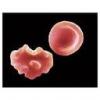Leaderboard
-
Points824Posts
-
-
.jpg.c873029d6ea548a78cb17a21407a1303.jpg) Points2,989Posts
Points2,989Posts -
Points8,944Posts
Popular Content
Showing content with the highest reputation on 06/04/2015 in all areas
-
Barriers to understanding
Barriers to understanding
Maureen and one other reacted to Dr. Pepper for a post in a topic
2 pointsAll this just reinforces my opinion that one should never, never, ever get sick, because then you can get treated and all sorts of bad things can happen!2 points -
OR refrigerator--to discard or not to discard....
OR refrigerator--to discard or not to discard....
maureen320 and one other reacted to tbostock for a post in a topic
2 pointsThe Joint Commission frowns upon refrigerators in OR. Nothing in writing, but every inspector asks me about it, and when I say no (emphatically!) that I don't have one, they are happy. As David states above, they could take blood out of the refrig and put it back and you wouldn't know it. We have a surgeon who is always pestering for one, saying "I just want access to blood when I need it". He's made enough noise to Administration that now I have to do coolers...just for him. Which makes me as red in the face as you Maureen.2 points -
Barriers to understanding
1 pointNeed to rant! I had a tricky one yesterday - massive obstetric haemorrhage on an ANeg patient. No group on the patient so AB plasma issued (both rhesus postive and negative), A positive stock platelets given and ONeg flying squad units. It was a total mess! Firstly they came to the lab wanting units without even requesting them, the sample was still in the centrifuge so flying squad units were issued. It was at this point that the lab person asked theaters if they were wanting to initiate the massive haemorhage policy. They did. The theater person was sent away with two units of flying squad blood and told we would phone when we had blood available. The FFP was put into thaw and stock platelets ordered from our sister lab. By the time the sample was on the analyser and had 8 minutes to go. The theater person turned up and requested 4 blood, 4 FFP and 1 platelets on the baby and had brought down the notes for the baby. We informed them that we hadn't even had a sample from the baby but could take the neonatal flying squad if needed. Rang theaters and they informed us it was the MHP pack for the mother not the baby! The person collecting the products hadnt actually brought the proper noted with the transfusion request, but an addressograph sticker... Theater person was sent away for the correct notes and told the blood would be ready when they returned. They returned and took the blood and FFP - left the FFP paperwork so obviously didn't do the proper checks on it. Called them back to collect the paperwork and gave them the platelets to which was now ready. Next they were on the phone complaining that the platelets were Rh pos. We told that this was fine and we would issue anti-D and just to transfuse. We issued the anti-D and another theater person came down to collect it. When they arrived they didn't have any patient identifiers at all so was sent to collect the notes. Their response was 'why do I need to check again if my colleague as done all the checks already?'. Staff member was reminded it was both national and local policy and the reasons for this. When she returned she was rude and huffy Half an hour after the platelets were collected we received another call claiming they couldn't find the product number on the anti-D to complete the checks (they were looking at the lot number, not the unique identifier). They informed us at that point that they 'couldn't issue the platelets until the anti-D had been given'. They were informed that they had 72 hours to give the anti-D and they shouldn't be withholding platelets in a MHP situation! Grief - imagine if we had run out of rh neg blood and had to issue rh pos?!?! We only had 4 units left at this point Anyway they gave the platelets and anti-D. A few hours later we received another call to say that they had found the baby's cord blood but the person who took it had left and they hadn't filled in a form. My colleague (wrongly) told them to send the sample with a form signed by her and we would accept it. The sample arrived and was labelled as 'baby of YYYYY' when it was baby of XXXXX. Could any more go wrong?? And I was the one who had to fill in the incident form The staff involved are being retrained and competency assessed and the transfusion practitioner is going to do a talk about 'suitable' instead of 'compatible' in an emergency situation and issue firm guidelines. I left with a headaches that day Why can people just not follow policy1 point
-
Antibodies from nowhere?
Antibodies from nowhere?
SMILLER reacted to Malcolm Needs for a post in a topic
1 pointHi Scott, I can't give exact figures as 1) I am not at work (and I'm not certain that we keep such figures anyway) and 2) I've just got off a 10 hour flight from Las Vegas, having had a 10 hour flight there a couple of days back, so I am more than a bit jet lagged, but, empirically, we see a surprising number.1 point -
Hello from Finland
Hello from Finland
Malcolm Needs reacted to SMILLER for a post in a topic
1 pointTervetuloa! (yeah, I googled it) Scott1 point -
Antibodies from nowhere?
Antibodies from nowhere?
pstruik reacted to Malcolm Needs for a post in a topic
1 pointFor what it is worth, my vote is very firmly in the anti-C+G camp.1 point -
pheresis platelet received in two attached bags
pheresis platelet received in two attached bags
L106 reacted to BankerGirl for a post in a topic
1 pointWe do not pool them, but rather have nursing do it when they start the transfusion. This avoids the issue all together.1 point -
pheresis platelet received in two attached bags
When we pooled them together, we changed the date to 24 hours. We also lost the ability to return them to the supplier if they ended up not getting transfused. We no longer pool them together.1 point
-
OR refrigerator--to discard or not to discard....
OR refrigerator--to discard or not to discard....
tbostock reacted to David Saikin for a post in a topic
1 pointMy blood bank/surgery is also small, with very little usage but I still think it is the way to go - BB Vending machines. I talk about these a lot and most folks look at me askance.1 point -
OR refrigerator--to discard or not to discard....
OR refrigerator--to discard or not to discard....
COTTONBALL reacted to Auntie-D for a post in a topic
1 pointRemote monitoring is the way to go. Nowhere I have worked has relied on anyone other than blood bank staff to monitor temperatures - it's just not worth it.1 point -
OR refrigerator--to discard or not to discard....
OR refrigerator--to discard or not to discard....
tbostock reacted to maureen320 for a post in a topic
1 pointHello everyone, The Medical Director decided to discard the units. He is FDA-fearing1 point -
MLT vs MT
MLT vs MT
bldbnkr reacted to David Saikin for a post in a topic
1 pointI am fortunate enough to be able to provide the senior seminar in blood banking for a local community college (MLT program). These students are taught basic blood banking techniques and only receive rudimentary theory. They rarely know about complement. I also have been fortunate that they send me their top students for clinical - only 4 weeks (vs 6 for chem, hem and micro). I have a gruelling program which includes weekly talks to my staff, ab ids out the yinyang and lots of theory. We have hired 4 of these students based on their performance in my clinical HOWEVER most still refuse to get beyond the basics no matter how hard I try to get them to. When they were students they did absorptions, elutions, really difficult abids, etc. Now it is like pulling teeth to get most of them to consider an eluate. I have even purchased the advanced blood bank surveys from CAP with the carrot of not having to do the routine surveys - only one taker (who was really the best of the lot but now is #2 in chemistry). It seems this is a pervasive problem with generation X (or whatever it is now - and these students are not all recently out of h.s., in fact at my last seminar everyone had a bachelors degree and there was one PhD, and 2 PhDs in the next year's class). ??????????????????1 point -
OR refrigerator--to discard or not to discard....
OR refrigerator--to discard or not to discard....
Ensis01 reacted to Dr. Pepper for a post in a topic
1 pointI'm SO glad we don't have one of these. OK: chart/alarm shows temp stayed within range, temp was recorded once during the day. Keep the blood. Not OK: chart/alarm shows temp stayed within range, temp was not recorded once during the day. Throw away the blood. I kind of like Dave's point "Better to eat them and use the incident as a means for better compliance with regulations." However, I don't see a difference in how the blood was stored in the 2 scenarios, aside from a note on a logsheet, so I side with goodchild and kirkaw. The real issue, as Dave continued, is that the units could have been taken out of the fridge, sat and cooked for half a day on a counter, then put back in. In either scenario you wouldn't know it. There's my non-answer. Throw them away if you want to make a point to the OR, but I see no difference in safety whether someone recorded a random temp or not.1 point -
Antibodies from nowhere?
Antibodies from nowhere?
Dr. Pepper reacted to Yanxia for a post in a topic
1 pointOr anti-C and anti-G1 point -
OR refrigerator--to discard or not to discard....
OR refrigerator--to discard or not to discard....
Malcolm Needs reacted to David Saikin for a post in a topic
1 pointI agree and disagree with Terri - you can make a case that the units were stored correctly. The feds would say you did not follow procedure. I'd hate to have to defend it in court as juries are notoriously ignorant. Better to eat them and use the incident as a means for better compliance with regulations. The lost $$$ may or may not concern your administration. Try billing them to the O.R. I have a sporadic day when my BB temps are missed (maybe 2x/yr). I document that the chart is fine and no alarms sounded; we are staffed 24/7. Haven't had a problem with inspectors on this, even the feds . I really have a problem with OR refrigerators - there is no way to document that the units haven't been removed and then returned to the refrig. You can put the temp monitors on them. I have been that route in the past and the units always came back as compromised. Administration always backed the OR even when we put parallel monitors on units we kept in the BB to prove that they were viable. I've also seen residents just taking blood out and hanging it - paperwork be damned!! This is one example of why the FDA does not want the Red Cross to accept returns after distribution - ARC can't vouch for the the maintenance of storage compliance when the blood is not under their control. A lot of words but no real help to you I'm sure.1 point -
OR refrigerator--to discard or not to discard....
OR refrigerator--to discard or not to discard....
Malcolm Needs reacted to tbostock for a post in a topic
1 pointGo with your gut instinct and discard them. They are probably fine because the chart looks good, but I'm a big fan for being better safe than sorry. The refrigerator is hooked up to some type of remote alarm if it goes out of range, correct?1 point -
Echo Users- seeing huge tube vs Echo discrepencies?
In the case of anti-Jka-ish looking reactions, if it sort of looks like a duck, sort of quacks like a duck and the patient is negative for Jka (or Jkb)...call it a duck or in this case anti-Jka. This is what I've done with tube, PeG and now solid phase because Jka antibodies can be such sneaky little buggers and the chance of a reaction (at least delayed) is there if it truly is anti-Jka. When I validated our Echo 7+ years ago, I found a lovely anti-Jka with solid phase that was totally non-reactive with PeG and gel. The Jk antibodies really do like solid phase best. Over the years we've seen other antibodies that react in solid phase, but not PeG and actually saw 3 in total that didn't react with gel during validation (anti-Cob, -Jka and -c). The reference lab will say they saw nothing, because they most likely didn't use solid phase. When I've done method comparisons for CAP requirements, I've see antibodies that were clear cut and that reacted 2+ or greater on the Echo, then saw them react microscopically only with PeG and not at all with LISS. It's the nature of different methods and something to be aware of when working on these types of problems. Doing method comparison gives you a pretty good picture of what those varied reactivities could be. BUT - before solid phase we did IDs for years with only LISS or PeG or gel and we didn't see all kinds of transfusion reactions delayed or otherwise. The only 2 reactions I saw, that we missed with a non-reactive antibody screen, were anti-Jkas that did not react with the method we were using at the time. Moral of the Story: Do the best you can and use your best judgement when deciding where to draw the line ( and it makes me more comfortable to call the Jka-ish antibodies - Quack Quack).1 point
-
MLT vs MT
MLT vs MT
ElinF reacted to Dr. Pepper for a post in a topic
1 pointFor decades we hired only MTs, but have had to hire a few MLTs over the last couple of years due to MT shortages. I find the quality of work varies not from the number of college courses they took but the innate ability, initiative and interest of the worker. We train equally and job responsibilities are equal (although the MTLs cannot do some things, like review results etc). I had a MLT generalist on last weekend. He had a patient who got 4 units of blood the week before who now presented with anti-c and a positive DAT, weak mixed field. Pretty classic delayed reaction, except that the eluate reacted with all the panel cells. DAT was negative the week before. He dug into it and tested some more c-negative cells and found that there was also anti-Fya and -Jkb in the eluate (but not in the plasma yet). En route he tested the eluate with ficin-treated cells and PeG and ficin-treated some additional ones himself to help untangle the specificities. I did give him some phone coaching along the way, but it was an excellent job of blood banking. "Just" a MLT, but he really digs BB.1 point -
Info needed on new Ortho gel options
Info needed on new Ortho gel options
Joanne P. Scannell reacted to AuntiS for a post in a topic
1 pointRight, my understanding is that BioRad bought Diamed. Diamed is used outside of NOrth America and is on its way here now that the patent restriction has been lifted. I'm excited about the Biorad reagents - bigger vials, longer expiry (7 weeks vs 4 weeks) while still delivering every 4 weeks. s1 point -
QC on Panels
QC on Panels
lehooke reacted to John C. Staley for a post in a topic
1 pointI have never qc'd panels and will be ending my career with that same statement, mostly, because at my current and final employer we don't perform antibody id's. This discussion is not a new one and will continue to pop up with new inspectors and new interpretations of old rules. Frankly, there is not anyway to realistically QC a panel and have confidence that the every antigen listed is detectable. Frankly I am surprised at the number of folks responding that they do some form of panel QC. In my ever so humble opinion you are providing nothing but smoke and mirrors to pacify some inspector. I suppose that as long as you are successful at this it's worth the effort.1 point









